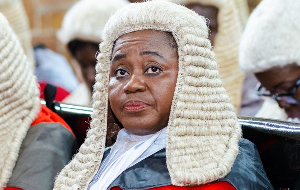In April 2025, Ghana’s legal and political scenes were jolted when Chief Justice Gertrude Araba Esaaba Sackey Torkornoo was suspended by President John Dramani Mahama.
The decision followed the establishment of a prima facie case of misconduct, sparking impassioned debates on the state of judicial accountability and independence in Ghana.
The genesis of the suspension
The drama unfolded after three petitions accused Chief Justice Torkornoo of misconduct.
Pursuant to Article 146 of the 1992 Constitution, the President referred the matter to the Council of State. Upon their advice, a five-member committee—comprising high-ranking legal, military, and academic figures—was formed to investigate the claims.
President Mahama’s statement stressed that the suspension was not a declaration of guilt but a constitutional measure to ensure the investigation’s integrity.
The Chief Justice’s response
Justice Torkornoo responded with defiance and concern. On June 25, in a public address, she denounced the proceedings as lacking transparency and fairness. Her grievances included:
- Being denied access to the full petitions.
- A rejected request for a public hearing.
- The committee’s venue—Adu Lodge—evoking historical trauma linked to the 1981 murder of judges, including her uncle.
- Doubts about the neutrality of committee chair Justice Pwamang due to prior involvement with a petitioner.
She remained resolute, declaring that resignation would signal surrender to what she described as an “unconstitutional process.”
Public and legal reactions
The public response was deeply polarized. Supporters viewed the suspension as an expression of judicial accountability, arguing that no official should be immune from scrutiny.
Others feared it could be a veiled political maneuver, threatening judicial independence and institutional integrity.
The lack of transparency surrounding the proceedings only fueled concerns, leading civil society groups to demand more openness and adherence to due process.

